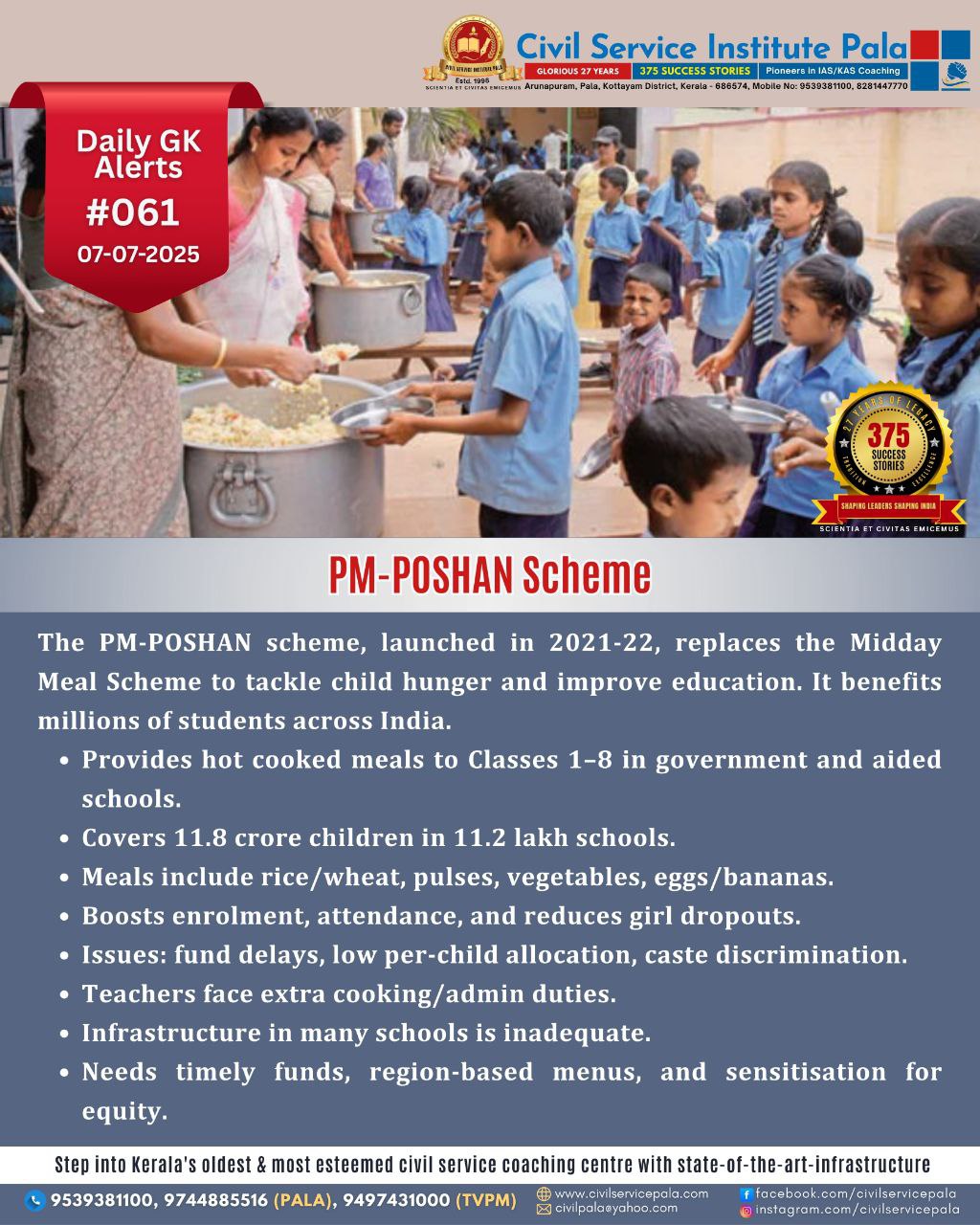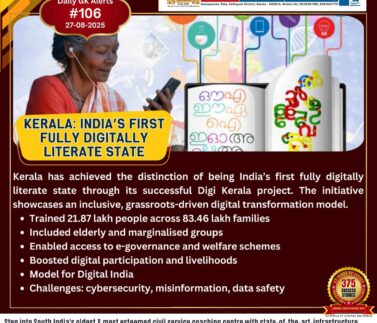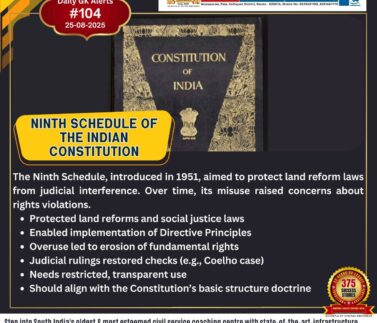
PM-POSHAN Scheme
PM-POSHAN Scheme: Feeding Children, Strengthening Education
The PM-POSHAN scheme, launched in 2021-22, replaced the old Midday Meal Scheme to continue India’s fight against child hunger and school dropouts.
Objectives and Features
PM-POSHAN aims to provide one hot cooked meal daily to students from Classes 1–8 in government and aided schools. The programme covers around 11.8 crore children across 11.2 lakh schools. Meals include rice or wheat, pulses, vegetables, and eggs or bananas where permitted. The scheme promotes nutrition gardens, uses IT-based monitoring, and links with Samagra Shiksha and Poshan Abhiyan for holistic child development.
Achievements
Studies show it has improved school enrolment, attendance, and retention, particularly among marginalised children. States like Tamil Nadu report fewer girl dropouts due to added breakfast. For many students, this is their first nutritious meal of the day, improving focus and learning. Kerala’s egg-fried rice menus and Tamil Nadu’s breakfast scheme are examples of state-level innovations.
Challenges
However, implementation faces hurdles. Fund transfers are often delayed by months, forcing teachers to manage with personal loans. The money allocated per child is too low compared to real food costs. Uniform meal policies ignore local food habits, and reports of caste discrimination in serving meals continue. Additionally, teachers spend valuable teaching hours managing meal duties, while many schools lack proper kitchens or storage.
PM-POSHAN is crucial for child nutrition and education in India. To strengthen its impact, timely fund transfers, increased per-child allocation, region-based menus, and measures to ensure dignity for all students are essential for building an equitable future.



